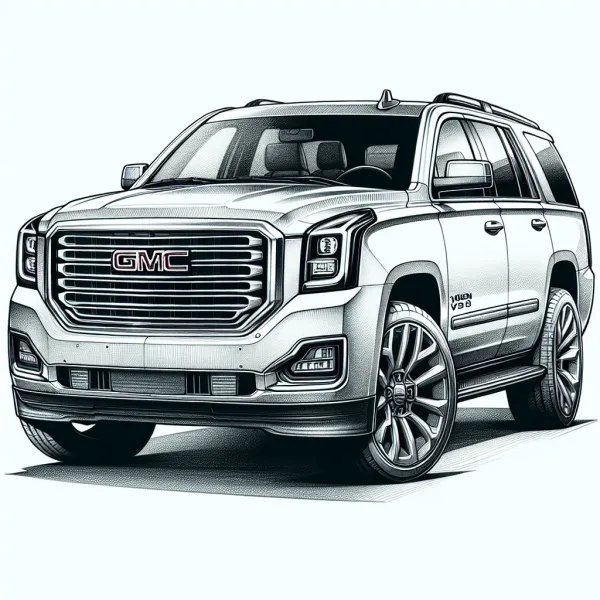GMC Yukon 5.3L V8 (2021-Present): A Mechanic's Unfiltered Take
The GMC Yukon 5.3L V8. Big, bold, and thirsty. It's the quintessential American SUV, perfect for hauling families, boats, and egos. But before you sign on the dotted line, let's get real about what it's like to own one of these beasts, straight from a mechanic's greasy hands.
Who's This SUV For?
The Yukon 5.3L V8 targets folks needing towing capacity and space. If you're regularly hauling a trailer or have a large family, it might fit the bill. If you're just commuting, you're paying for capability you don't need.
Real-World Fuel Consumption
Forget the EPA estimates. I see Yukons in my shop averaging 15-17 mpg in mixed driving. City driving? Expect closer to 13-15 mpg. Highway? Maybe 18-20 mpg if you're lucky and have a light foot. Towing? Kiss that mileage goodbye – single digits are possible.
Common Problems
While the 5.3L is generally reliable, it's not immune to issues. I've seen:
- Active Fuel Management (AFM) problems: This system deactivates cylinders for fuel efficiency, but it can cause lifter failures and oil consumption issues. GM has tried to fix it, but problems persist in some models. Look for excessive oil consumption or a check engine light.
- Transmission issues: Some Yukons have experienced transmission shuddering or rough shifting, often requiring software updates or, in worse cases, a rebuild. Listen for any unusual noises or hesitation during shifting.
- Electrical gremlins: Modern vehicles are complex, and the Yukon isn't immune to electrical glitches. I've seen issues with infotainment systems, sensors, and wiring harnesses.
Maintenance Costs
Owning a Yukon isn't cheap. Oil changes can run $100-$150. Brake jobs can easily top $500. Tires? Expect to pay $800-$1200 for a set. And that AFM system? If it acts up, repairs can run into the thousands.
Hidden Costs
Don't forget the little things. Specialized fluids, premium fuel recommendations, and diagnostic tools add up. Factor in higher insurance premiums and property taxes, too.
Overall Reliability
The 5.3L V8 is a decent engine, but it's not bulletproof. Problems exist, and repairs can be expensive. I'd rate its reliability as average for its class.
Total Cost of Ownership
Be prepared to spend. Fuel, maintenance, and potential repairs make the Yukon an expensive vehicle to own.
Resale Value
Yukons hold their value reasonably well, especially in higher trim levels. However, high mileage and neglected maintenance can significantly impact resale.
Tips for Prospective Buyers
- Get a pre-purchase inspection from a trusted mechanic. Focus on the AFM system and transmission.
- Check the vehicle's history for recalls and service records.
- Avoid heavily modified Yukons, as they may have been abused.
- Be prepared to negotiate. There's often room to haggle on price.
Alternatives
If the Yukon's thirst and potential problems scare you, consider the Toyota Sequoia, Ford Expedition, or Chevrolet Tahoe. They offer similar capabilities with potentially better reliability and fuel economy (in some cases).
Conclusion
The GMC Yukon 5.3L V8 is a capable SUV, but it comes with a price. Be prepared for high running costs and potential repairs. If you need the towing capacity and space, and you're willing to pay, it might be a good fit. But if you're looking for a cheap and cheerful SUV, look elsewhere.
